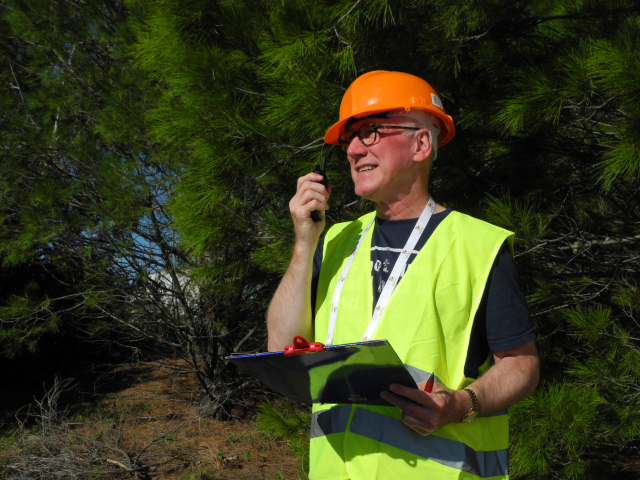
It could be hundreds of years before robots become smarter than humans, according to leading robotics expert Alan Winfield.
“The fundamental scientific problem is that we don’t know how human intelligence works; let alone things like creativity, intuition or empathy,” said Winfield, professor of robot ethics at the University of the West of England, in the UK. “So trying to make artificial human-level intelligence is probably about as difficult as trying to build a warp drive for faster-then-light space travel.”
At the European Robotics League Emergency Robots (ERL Emergency) tournament in Piombino, Italy on 15—23 September 2017, Winfield (above) warned of a long wait before robots were as smart as even apparently ‘simple’ movie robots like WALL-E.
“It will be a very long time before we have robots as intelligent and capable as C3P0 or R2D2 — perhaps by the end of this century?,” he said. “It’s hard to forecast when, because there are so many unsolved technical problems in the embedded artificial intelligence — the thing that makes robots smart — and in the materials, sensors and the robot’s energy supply.
However, he said that during ERL Emergency 2017 the public are likely to see robots making their own decisions and collaborating with each other, on land, in the air and in the sea.
“You will see robots sometimes operating autonomously, i.e. making their own decisions, doing things like navigation and exploration. However, for more difficult tasks — like closing a valve — the robots are likely to be tele-operated by human controllers.”
The competition should also see robots collaborating with each other — for instance by having a flying robot deliver a first-aid kit to a land robot, which will then take it to an injured ‘worker’. But Winfield adds: “However, it’s unlikely that task will be autonomous because such robot-robot coordination is still very difficult without humans in the loop.”
He accepted that future robots could be smarter and more autonomous than humans, but added: “They will still be machines designed by humans, for humans, so there is no real risk that they will be out of control. There are of course some risks in any new technology, but the ethical risks are more likely to be things like the impact on jobs, privacy or war. We need to take these risks seriously and ensure that robots improve human well-being.”
Winfield said that few roboticists were developing ‘ethical’ robots: “Most robot ethics work is on how human roboticists (and manufacturers, etc.) should behave responsibly.”
Any work on ethical robots is at a very early stage, trying to embed human ethics into robots, so that robots can take decisions on the basis of ethical rules, he said: “So that robots can be more than just safe, but can actively intervene to prevent humans from coming to harm. This is technically very difficult and is early-stage research, so it will be a long time before we see ethical robots in everyday use.”
Ends
Professor Alan Winfield
FET — Engineering, Design and Mathematics
Tel: +44 (0)117 32 82644
Email: Alan.Winfield@uwe.ac.uk
Linkedin: https://www.linkedin.com/in/alanwinfield
Twitter: https://twitter.com/alan_winfield
Press contact
Paolo Lombardi
Email: pao@cmre.nato.int
Website: www.robotics-league.eu
Twitter: @ERLrobotleague
Facebook: http://www.facebook.com/ERLrobotleague
Notes for editors
The European Robotics League is funded by the European Union’s Horizon 2020 research and innovation programme under grant agreement n° 688441.
It is part of the SPARC public-private partnership set up by the European Commission and euRobotics to extend Europe’s leadership in civilian robotics. SPARC’s €700 million of funding from the Commission in 2014̶20 is being combined with €1.4 billion of funding from European industry. old.eu-robotics.net/sparc
euRobotics is a European Commission-funded non-profit organisation which promotes robotics research and innovation for the benefit of Europe's economy and society. It is based in Brussels and has more than 250 member organisations. old.eu-robotics.net